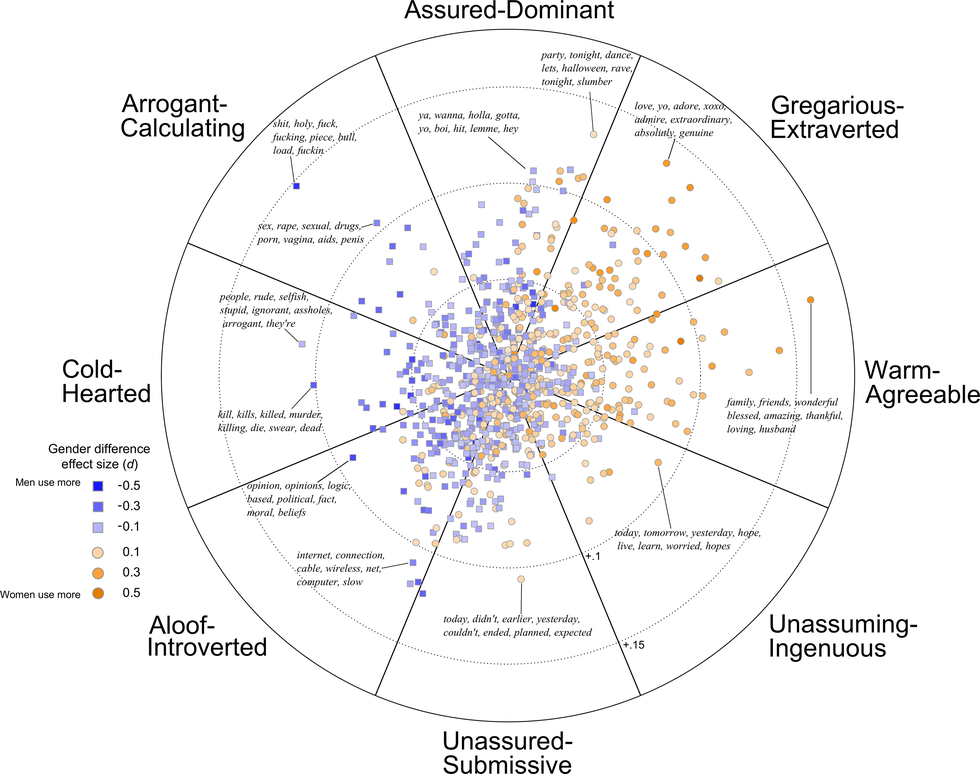I’ll be the first to admit I uphold annoying generalizations concerning women’s ability to be assertive. Just look at that photo. I’m obviously losing my cool while my boyfriend stays stone-faced. In my communication as well, I often overflow sentences with unnecessary adjectives or tag them with “But that’s just me,” or “I think” so I don’t come off too brash. Why? Partly because I’m naturally a people-pleaser, but partly because society and media constantly tell me women can’t be aggressive, confident, direct. It’s assumed these traits are negative for women, but positive for men; though in reality, they’re inherently neither.
A recent PLOS ONE research article detailed a study on the differences in language men and women use on Facebook. The researchers knew models could correctly determine an author’s gender affiliation more than 90 percent of the time, and wanted to dig deeper to figure out just what those differences encompassed.
For starters, the results were similar to previous studies.
“Male-linked features included directives (e.g., “do this.”), judgmental adjectives (e.g., “good”, “stupid”), and references to location and quantity, whereas female-linked features included hedging (“seems”, “maybe”, “kind of”), longer sentences, intensive adverbs (e.g., “so”, “really”), and references to emotions (e.g., “excited”, “happy”, “hurt”).”
Also, consistent with age-old stereotypes, “judges blind to authors’ self-reported gender tended to rate females as nicer, more pleasant, and more intellectual, and rated males as stronger, louder, and more aggressive.”
So, here’s the good news. Despite those underscores of gender roles, the discussion stated women were just as likely to use highly assertive language as men, only they did so warmly instead of coldly. For example, men often covered topics involving “swearing, criticism, controversial topics” while women expressed “positive emotions and warmth toward others.” It’s paradoxical the same generalizations that label women as nurturing and men as distant are actually portrayed in the same type of manner, going against the adage: “it’s not what you say, it’s how you say it.”
This is not to downplay the importance of tone, only that society has gone too far in focusing on characterizations rather than the subjects at hand, which in turn only leads to more women using qualifiers or raising their voices at the end of sentences and men’s naturally deeper tenors sounding more confident. Through using algorithms and assessments, the study was able to see “old psychological questions in a new light.” The very fact that this article is riddled with phrases like “surprisingly” or “contrary to expectations” goes to show how long overdue these findings are.
For all those who believe women are too passive to be CEOs, think again. It’s possible to be emphatic while still being encouraging. Utilizing incentives instead of negative punishment in the workplace creates a healthier environment where employees will actually desire to be.













































